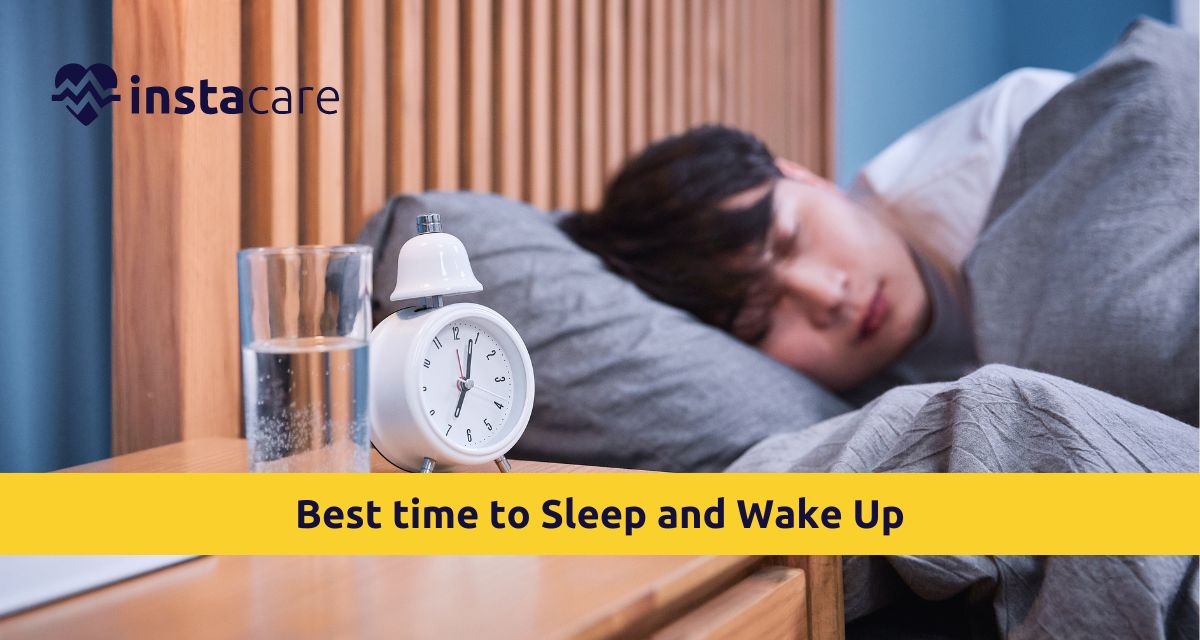Some of us already know how important it is to have an
adequate night's sleep and that it has to be of good quality. From improved
cognitive functioning to a better way of regulating one's emotions, not to mention the benefits for physical health, the benefits of good sleep are unlimited. The
answer to what kind of sleeping time/wake-up time schedule is considered
"best," however, is very much under debate and research. We'll cover
the science behind the best sleep-wake cycles and then give you actionable,
real tips on how you can get the most out of your sleep in this in-depth blog
post.
Understanding Circadian Rhythms
The sleep-wake process is determined by the internal
biological clock that forms the core of the body and is controlled by the
suprachiasmatic nucleus, located in the hypothalamus portion of the brain. This
internal biological clock becomes synchronized with the dark-light periodicity
cycle of 24 hours and modulates such physiological phenomena as the release of
hormones, the rise and fall of body temperature, and sleep-wake cycles.
The exogenous stimuli that eventually provide timing for the
circadian rhythm come in many forms and are known as zeitgebers; one of the
most significant of these is light. Unless the SCN detects some light, it
activates a full physiological response, designed to wake a person up.
Conversely, darkness initiates the activity of putting someone to sleep.
The Ideal Sleep-Wake Cycle
But individual sleep needs differ. Most adults need many of
the following recommendations. Well-supported sleep-wake cycles have to do with
the following:
Sleep Duration:
The recommended amount of sleep for adults is generally
7-9 hours a night, with the sweet spot at approximately 8.
Bedtime:
For most, this would ideally lie between 10:00 PM and 11:00
PM. The timing sets the body in relation to its natural circadian rhythm and
provides adequate sleep before a person naturally wakes up in the morning.
Wakeup Time:
The best time to wake up has to be anything between 6:00
a.m. and 7:00 a.m. so that one gets a good night's rest, allowing the body to
go through all normal phases of sleep. That includes the very important REM, or
Rapid Eye Movement.
Factors Impacting the Best Sleep-Wake Cycle
Though the general guidelines presented above are considered
as a good starting point, baseline optimal sleep wake cycles are influenced by
several factors, which include the following:
Age:
- Sleep demands and patterns change dramatically across the life
span.
- Newborns and infants require the most hours of sleep—up to
17 hours per day.
- Preschoolers do require an average of 10-13 hours of sleep
per night.
- School-age children and teenagers need 9 to 11 hours per
night.
- Most adults need 7–9 hours of sleep each night, and this
duration would optimally be about 8 hours.
- Older people (>65) tend to require a bit less sleep per night, averaging 7–8 hours.
View More: Sleeping Pills - Types Side Effects And Treatment
Chronotype:
- Everybody fits either into the "morning lark"
category, waking up early or the "night owl" one, staying up late.
- The mornings belong to the morning larks, whose bedtime and
rise time are earlier, while the night owls are designed for later nights and
waking up much later.
- Chronotype is a factor that is strongly influenced by
genetics and dictates the time an individual should sleep and wake up.
Lifestyle factors and Work Schedule
- It's just that work hours, commuting time, and social
obligations can so greatly interfere with the optimum sleeping-waking schedule.
- Mostly, work shift workers, such as healthcare professionals or working individuals in different industries, are not able to sustain a constant and proper sleep-wake schedule because of mismatched working schedules.
Health Conditions:
- Certain medicinal conditions may alter the normal sleep-wake
cycle of the human body. Such conditions may include sleep disorders, hormonal
imbalances, or mental illnesses that disturb the normal process of sleep.
- In patients with sleep disorders like insomnia, obstructive
sleep apnea, and restless leg syndrome, sleep initiation, staying asleep, and
good sleep are interfered with.
Practical Tips for Optimising Your Sleep-Wake Cycle
Consider these helpful hints to get you on the right
sleep-wake track:
Keep a Schedule:
It means going to bed and waking up at the same time every
day, weekends included, for your body to train itself by the pattern.
Practice a Calming Bedtime Routine:
Do whatever it is that works for you, be it reading a book,
taking a warm bath, or some relaxation to let your body know that it is time to
go to sleep.
Optimize your sleep environment:
Your bedroom should be cool, dark, and quiet to make you
sleep.
Get Some Daylight:
Expose your body to outdoor daylight or, if indoors, to a
well-lit area during the day, which will stimulate one's biological clock.
Avoid Stimulants and Blue Light Before Bed:
Keep away from coffee, alcohol, and any kind of electronics
a couple of hours before going to bed.
Listen to Your Body:
Pay attention to your needs in relation to sleeping and
accord your time of sleeping and waking in accordance with general rules.
Conclusion
That is important for the maintenance of health and
well-being. Practical tips, along with knowledge about the science behind
circadian rhythms, are helpful in unlocking numerous advantages that come from
getting the right amount of sleep. Recall that a "best" sleep-wake
time is one that leaves a person feeling well rested, energized, and performing
at peak levels clear through the day.
Please book an appointment with the best Nutritionist in Lahore, Karachi, Islamabad, and all major cities of Pakistan through InstaCare, or call our helpline at 03171777509 to find the verified doctor for your disease


